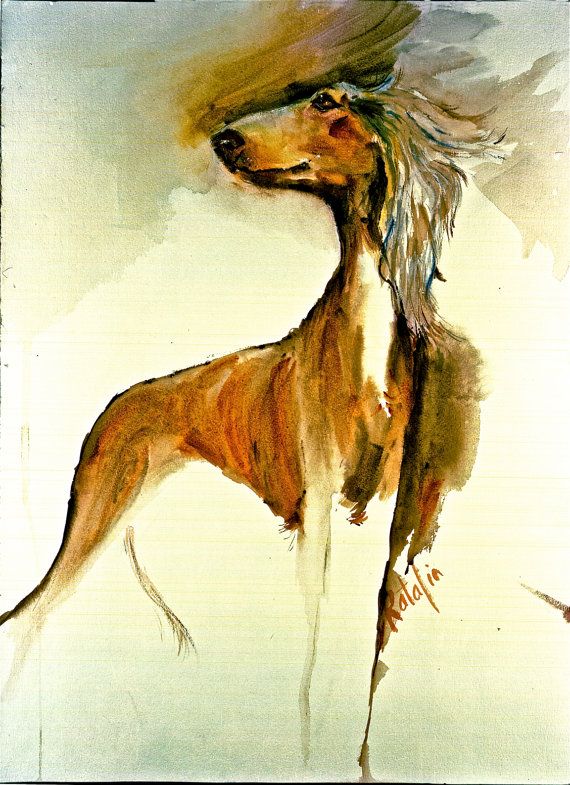
When a breed is truly ancient, sources of that time that help us separate fact from folklore are scarce, so it is with that in mind that we share a legend within the Muslim culture. It has to do with the only exception to the Islamic belief that dogs are considered unclean. If licked by a dog, a Muslim is required to wash that area seven times before praying because the whole dog is essentially naajis, or impure (our sources are Shaafii and Hanbali ulamaa, two of the major schools of Islamic jurisprudence within Sunni Islam). The belief is understandable when one considers that during a period of history, there were many stray dogs in the cities of the ancient world that were widely believed to be the cause of many diseases spread amongst people living there.
The exception, however, is the Saluki, a highly esteemed and culturally significant breed in Islamic and Arab cultures valued for its speed, intelligence, and loyalty, and the outlier to the general Islamic view of dogs as unclean. The breed has been an integral part of Arab culture and heritage for centuries and has cultural significance similar to the Arabian horse, both deeply rooted in the traditions and way of life of the Bedouin people. Bedouin tribes, in fact, refer to the Saluki as “al hurr” or “the noble one.”
We have no concrete historical evidence that the Prophet Muhammad owned a Saluki, but there is a legend that the Prophet Muhammad did have a beloved Saluki named Saluq who was known for his unwavering devotion to his master and with whom the Prophet hunted, thereby further contributing to the breed’s revered status in Islamic tradition. This reverence traces back to the Hadith, a record of the words, actions, and the silent approval of the Prophet. It includes rules governing hunting with “Hounds which run like the wind,” dogs widely accepted to be Salukis.
“It says in the Quran that you may eat of the meat caught by trained hounds. That gives a them a kind of status because the only hound the Arabs had in the time of Prophet Mohammed would have been the Saluki,” this according to former British diplomat, Sir Terence Clark, who has authored several books and articles on the history and development of Salukis in their countries of origin, including Iraq, where he acquired his first Saluki in the 1970s. Again, it’s important to note that these are cultural beliefs and interpretations rather than documented historical facts, but oral traditions shouldn’t be discounted.
For more on the topic, you might find this article by Stephanie Hunt-Crowley of interest.
Image: Carol Ratafia
https://www.etsy.com/shop/ratafia
www.facebook.com/pages/Ratafia-Studios/316696101676821
